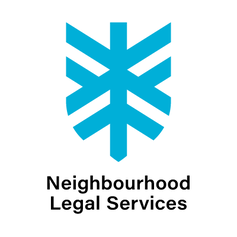|
In a landmark decision released this morning in the case of Canada v. Bedford, the Supreme Court has struck down three key provisions in Canada's arcane prostitution laws. While sex work itself is not illegal in Canada, provisions in Canada's Criminal Code on communicating for the purposes of procuring sex, procuring sex, bawdy houses and living off the avails of prostitution made it all but impossible to engage in sex work without risk of prosecution. The applicants in this case, all current or former sex workers, argued that these provisions not only fail to protect sex workers but actually cause them harm and thus infringe on their Charter of Rights and Freedoms rights under s. 7 that deals with life, liberty and security of the person. They also argued that the prohibition on communicating for the purposes of sex violates freedom of expression rights under s. 2(b) of the Charter. The applicants were also assisted by a number of intervenors, including the Canadian HIV/AIDS Legal Network, the British Columbia Centre for Excellence in HIV/AIDS, and our sister clinic, the HIV & AIDS Legal Clinic Ontario (HALCO).
Ontario's Superior Court of Justice agreed that Canada's prostitution laws violate the Charter and struck them down. The Government of Canada appealed to the Ontario Court of Appeal, which upheld the Superior Court's decision with the exception of the laws relating to communicating, relying on an older decision of the Supreme Court that these laws were not a violation of s. 2(b). The Government then appealed to the Supreme Court, while the applicants appealed the portion of the decision that upheld the laws on communicating. This morning, the Supreme Court decided that all three laws violate the Charter and could not be upheld under s. 1 of the Charter, a section designed to give the Government an opportunity to justify Charter violations. The Supreme Court declined to reopen the issue of whether the laws on communicating violate the freedom of expression, deciding the case solely on the basis of s. 7 of the Charter. The Supreme Court has suspended its declaration of invalidity for 1 year to allow the Government to amend the Criminal Code. Parliament must now ensure that any new laws governing sex work do not replicate the harms caused by the unconstitutional provisions, or they would risk being struck down again. NLS conveys its congratulations and best wishes to the parties, and commends the intervenors, and particularly HALCO, for their hard work and leadership on this important issue. FURTHER INFORMATION You can read the joint Press Release by the intervenors here. You can read the full text of the decision here. Comments are closed.
|
The NLS BlogOur blog shares information with our community on legal developments and other important issues. As such we hope you'll find this blog informative - and maybe even fun. Categories
All
|
Powered by
 Create your own unique website with customizable templates.
Create your own unique website with customizable templates.
 Create your own unique website with customizable templates.
Create your own unique website with customizable templates.

